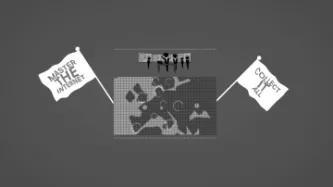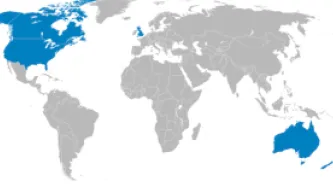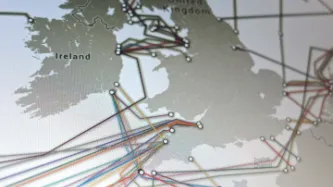Search
Content type: News & Analysis
What happened
On 22 July 2021, the Investigatory Powers Tribunal (IPT) issued a declaration on our challenge to the UK bulk communications regime finding that section 94 of the Telecommunications Act 1984 (since repealed by the Investigatory Powers Act 2016) was incompatible with EU law human rights standards. The result of the judgment is that a decade’s worth of secret data capture has been held to be unlawful. The unlawfulness would have remained a secret but for PI’s work.
You…
Content type: Advocacy
In October 2018, Privacy International submitted to the public consultation on the “Consolidated Guidance to Intelligence Officers and Service Personnel on the Detention and Interviewing of Detainees Overseas, and on the Passing and Receipt of Intelligence Relating to Detainees” (“Consolidated Guidance”) held by the Investigatory Powers Commissioner’s Office (“IPCO”).Privacy International’s submission addresses the portions of the Consolidated Guidance on “the Passing and Receipt…
Content type: Press release
Privacy International has filed a federal lawsuit seeking to compel disclosure of records relating to a 1946 surveillance agreement between the US, UK, Australia, Canada and New Zealand, known as the “Five Eyes alliance”.* We are represented by Yale Law School’s Media Freedom and Information Access Clinic (MFIA). The most recent publicly available version of the Five Eyes surveillance agreement dates from 1955. Our complaint was filed before the U.S. District Court for the District of Columbia…
Content type: Press release
Privacy International, in partnership with 30+ national human rights organisations, has today written to national intelligence oversight bodies in over 40 countries seeking information on the intelligence sharing activities of their governments.
Countries may use secret intelligence sharing arrangements to circumvent international and domestic rules on direct surveillance. These arrangements can also lead to the exchange of information that can facilitate human rights abuses,…
Content type: News & Analysis
This piece was written by PI Research Officer Edin Omanovic and originally appeared here.
Whatever happens over the next few years, if there is to be a storm, then it is best to prepare. It is essential that western liberal democratic societies are resilient enough to uphold their fundamental values.
One of the UK’s biggest security assets is one of its biggest security threats. The UK’s spies have access to and are allowed to exercise some of the most sophisticated electronic…
Content type: Press release
Privacy International has today written to government ministers, members of the opposition, and oversight bodies reaffirming its call for the UK government to reveal secret intelligence sharing arrangements with the United States.
The original UKUSA agreement — drafted shortly after World War II — allows UK and US agencies to share, by default, any raw intelligence, collection equipment, decryption techniques, and translated documents.
Current arrangements also allow US…
Content type: Long Read
This week, Privacy International, together with nine other international human rights NGOs, filed submissions with the European Court of Human Rights. Our case challenges the UK government’s bulk interception of internet traffic transiting fiber optic cables landing in the UK and its access to information similarly intercepted in bulk by the US government, which were revealed by the Snowden disclosures. To accompany our filing, we have produced two infographics to illustrate the…
Content type: News & Analysis
According to Snowden documents analysed by Privacy International, the Australian Signals Directorate had access to and used PRISM, a secret US National Security Agency program which provides access to user data held by Google, Facebook and Microsoft.
This is the third spy agency of the 'Five Eyes' alliance confirmed to have had secret access to Silicon Valley company data - an alliance whose rules and policies remain classified. Earlier this year, a British court ruled that GCHQ access to…
Content type: Press release
Human Rights Watch and three individuals have today lodged a legal challenge to establish whether their communications were part of those unlawfully shared between the US National Security Agency (NSA) and UK Government Communications Headquarters (GCHQ).
Despite billions of records being shared every day between the NSA and GCHQ, and that historical sharing having been declared unlawful [PDF], the Investigatory Powers Tribunal (IPT) has not yet confirmed to any claimant that their…
Content type: Long Read
Few revelations have been been as troubling for the right to privacy as uncovering the scope of the Five Eyes alliance. The intelligence club made up of Australia, Canada, New Zealand, the United Kingdom and the United States has integrated its collection efforts, staff, bases, and analysis programs. Yet the legal rulebook governing how the agencies ensure the most comprehensive joint surveillance effort in the history of mankind remains secret.
The little that is known suggests a…
Content type: News & Analysis
The central premise of international intelligence cooperation is that states are able to both access valuable partner information to protect their national security, and focus their own resources elsewhere in a mutually beneficial way. But is it really a quid-pro-quo partnership?
As the Intercept recently revealed, German policy-makers certainly have reason to doubt that this would be the case. What Germany has learned, like many others before them, is that dependence on the…
Content type: News & Analysis
Privacy International, Bytes for All and other human rights groups are celebrating a major victory against the Five Eyes today as the UK surveillance tribunal rules that GCHQ acted unlawfully in accessing millions of private communications collected by the NSA up until December 2014.
Today’s judgement represents a monumental leap forward in efforts to make intelligence agencies such as GCHQ and NSA accountable to the millions of individuals whose privacy they have violated.
The…
Content type: Press release
British intelligence services acted unlawfully in accessing millions of people’s personal communications collected by the NSA, the Investigatory Powers Tribunal ruled today. The decision marks the first time that the Tribunal, the only UK court empowered to oversee GHCQ, MI5 and MI6, has ever ruled against the intelligence and security services in its 15 year history.
The Tribunal declared that intelligence sharing between the United States and the…
Content type: Long Read
Many people imagine intelligence sharing to be a practice whereby men in trench coats silently slide manilla envelopes containing anonymous tip-offs or intelligence reports marked TOP SECRET across tables in smoke-filled rooms.
While such practices certainly exist, they represent only a tiny slice of intelligence sharing activities, and are vastly overshadowed by the massive exchange of bulk unanlysed (raw) intelligence data that takes place between the UK and its Five Eyes allies.…
Content type: Press release
Britain's intelligence services do not need a warrant to receive unlimited bulk intelligence from the NSA and other foreign agencies, and can keep this data on a massive searchable database for up to two years, according to secret internal policies revealed today by human rights organisations.
Details of previously unknown internal policies, which GCHQ was forced to reveal during legal proceedings challenging their surveillance practices in the wake of the Snowden revelations, reveal…
Content type: News & Analysis
The following is an excerpt from an Op-Ed written in the New Zealand Herald by Privacy International's Legal Officer Anna Crowe:
Since the release of documents by Edward Snowden nearly a year ago, New Zealand has often been seen as a passive participant in the Five Eyes intelligence-sharing alliance, not unlike a good kid hanging out with the wrong crowd.
However, Snowden documents released last month and the news that New Zealand appears to be sharing intelligence…
Content type: Press release
Privacy International today has filed a complaint with the Australian Inspector-General of Intelligence Security, calling for an immediate investigation into deeply troubling reports that the Australian intelligence services offered to violate the privacy rights of millions of citizens by handing over bulk metadata to its Five Eye partners.
According to the leaked Five Eyes memo published in the Guardian on 2 December, the Australian Signals Directorate, during a meeting…
Content type: Press release
The United Nations General Assembly should approve a new resolution and make clear that indiscriminate surveillance is never consistent with the right to privacy, five human rights organizations said in a November 21, 2013 letter to members of the United Nations General Assembly.
After heated negotiations, the draft resolution on digital privacy initiated by Brazil and Germany emerged on November 21 relatively undamaged, despite efforts by the …
Content type: News & Analysis
It was a strangely quiet summer. Beyond the Guardian's reporting of the Edward Snowden leaks and an appearance of William Hague before Parliament, there has been little uproar from the establishment about the extensive surveillance regime operated by the NSA and GCHQ.
No more greater has the silence been felt than from Whitehall, where MPs and government agencies remained tightlipped on the whole affair. This despite the fact that the revelations detailed the UK government's…
Content type: Long Read
Britain's spy agency, GCHQ, is secretly conducting mass surveillance by tapping fibre optic cables, giving it access to huge amounts of data on both innocent citizens and targeted suspects, according to a report in the Guardian.
Mass, indiscriminate surveillance of this kind goes against an individual's fundamental human right to privacy. The scope and scale of this program, which monitors the entire British public and much of the world, is neither necessary nor proportionate and thus,…
Content type: News & Analysis
Following an extensive campaign by Privacy International and our network of groups in the United Kingdom, the UK Government has decided to abandon its current plans for data sharing legislation.
The government has announced that it will immediately abandon clause 152 of the Coroners and Justice Bill, following on from an open letter that Privacy International sent to the Justice Secretary earlier this week.
As the Sunday Telegraph observed, the eloquence of the letter together with the…












